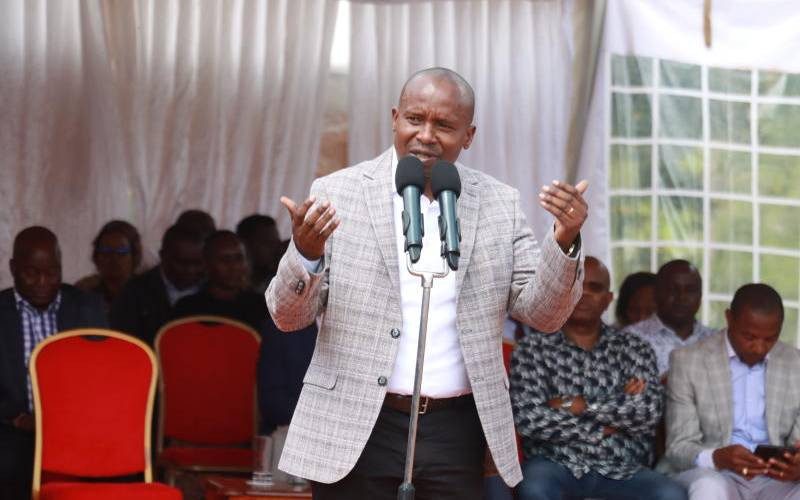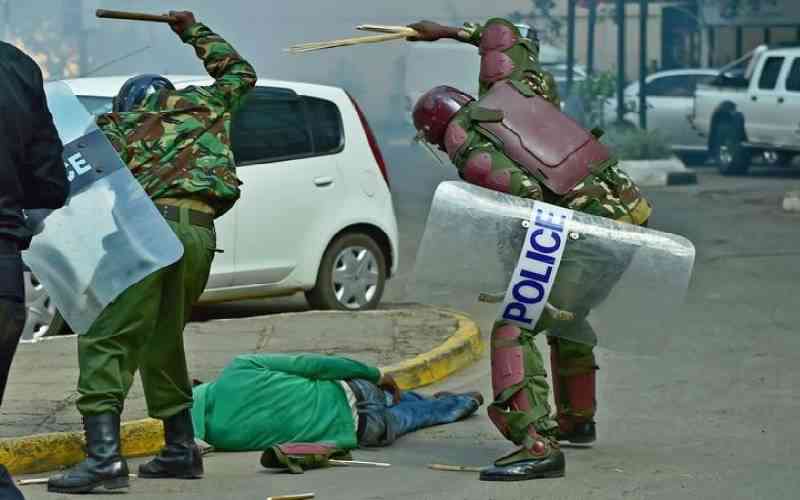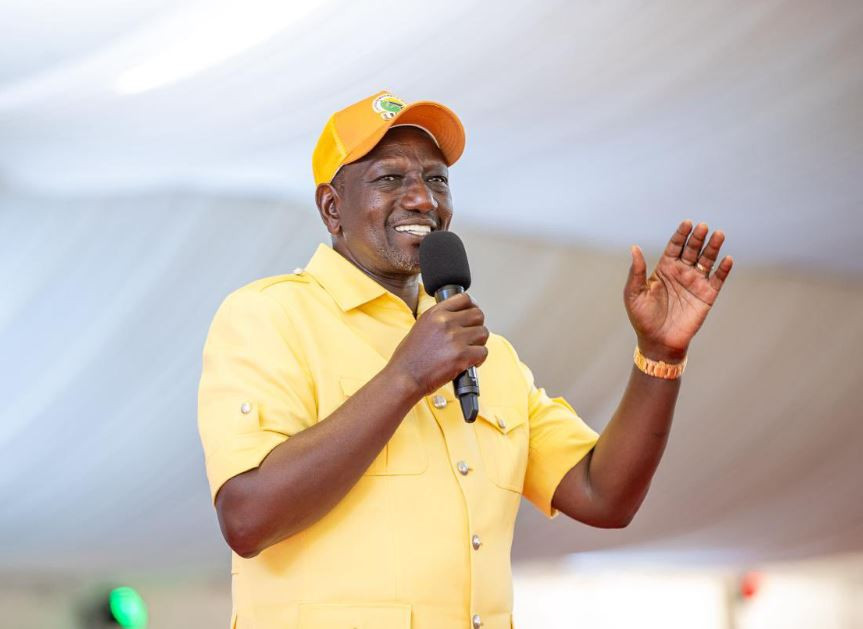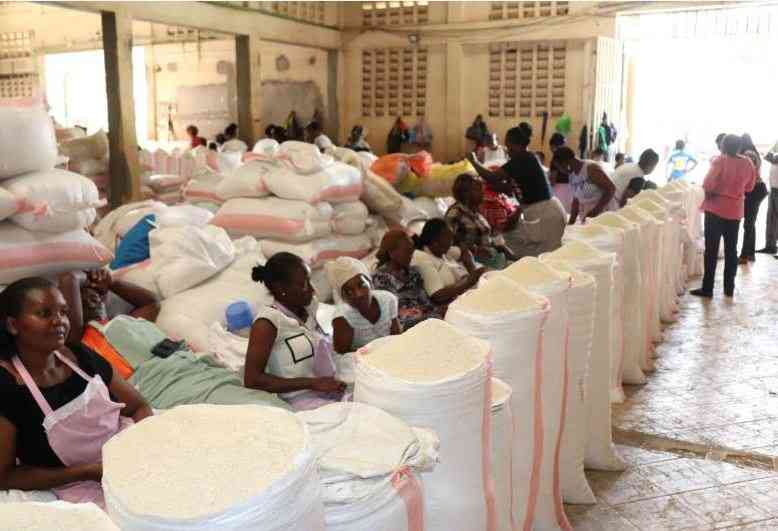Deputy President Prof Kithure Kindiki address Congregants whe he Led Kenya Kwanza leaders in a worship and Thanksgiving service at the Full Gospel Church Kamumu in Mbeere North, Embu County. The service was held at Karuari Primary School Grounds. January 5, 2025[Murithi Mugo, Standard]
×
The Standard e-Paper
Stay Informed, Even Offline






